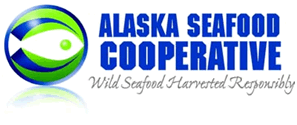SEAFOODNEWS.COM [Opinion], January 28, 2015
By Chris Woodley
Chris Woodley is the executive director of Groundfish Forum, which represents most of the Amendment 80 fleet
With recent evidence showing a possible decrease in the Bering Sea halibut fishery allocation this year, there has been a growing concern about halibut bycatch and discard mortality and what to do about it. Both groundfish and halibut fishermen will be affected by the outcomes.
As fishermen, the flatfish trawl catcher-processor fleet (aka Amendment 80 fleet) and the halibut fleet have a lot in common. We each provide healthy, sustainably harvested fish to feed the world and we proudly provide employment to fishing families. We also share a desire to reduce halibut bycatch.
Groundfish species harvested by the Amendment 80 fleet intermingle with halibut and cannot be harvested without some take of halibut. The Amendment 80 fleet maintains a halibut bycatch rate of less than 1 percent and our annual halibut discard mortality has dropped by 509 metric tons (over 1.1 million pounds) since 2005. Significant improvements in bycatch reduction have already been achieved, and efforts to reduce it further should consider potential impacts on our fleet’s fishermen and the Alaska communities that depend on us.
According to the North Pacific Fishery Management Council’s report “Five-Year Review of the Effects of Amendment 80,” the total economic impact of the Amendment 80 fleet is substantial, providing approximately 2,057 fishing jobs aboard our 18 vessels. Additionally, our fleet makes approximately 540 port calls in Alaska annually, creating an additional 2,500 indirect and induced jobs within Alaska. Sales of fuel, groceries, moorage, and time in shipyards are major contributors to fishery support services and vendors in rural Alaska communities. These activities contributes millions of dollars in local and state taxes to Alaska – $4.4 million in fish taxes alone in 2012. A large share of these taxes are reinvested in the coastal communities that we support with our fishing activity.
We know halibut is a shared resource, and take very seriously the importance of keeping discard mortality numbers as low as possible. As Capt. Terry Fisher of the F/V Ocean Peace says, “We do not like to discard fish that are valuable to another fishery. In fact, we do things to avoid these fish – we use excluders on our nets and we run away from high discard areas. All of which has a cost to our company and employees.”
Capt. Bob Hezel of the F/V U.S. Intrepid puts it this way: “We try very hard to catch only our target species, and we are largely successful. The crime is that we are forced by the law to throw away the halibut bycatch. It’s the same for the halibut fishermen, who are also forced by the law to discard their undersized halibut bycatch. Waste is bad, and laws that require fishermen to throw fish away are simply bad laws.”
To develop new ways of reducing the number of halibut we catch and increasing the survival of those we do catch, the Amendment 80 fleet collaborates with fishery scientists, fishery managers, and fishermen from all over the world.
Fortunately many of these efforts have paid off.
These improvements in bycatch reduction are possible because our fleet prioritizes accountability, science-based solutions, and collection of bycatch-related data (observers sample every haul). Armed with data, we are empowered to innovate ways to reduce bycatch and test whether these innovations bear fruit in real-world conditions. While there are things we don’t know and can’t control, the information we gather on our own fleet is powerful.
While we have worked hard for these bycatch improvements we know we must do more. That’s why we continue to research new ways to reduce bycatch and discard mortality.
To that end we are:
- Working with the National Marine Fisheries Service to allow for “deck sorting” to reduce halibut mortality. When deck sorting, halibut are accounted for before being carefully returned to the water as soon as the catch is brought on deck. Previous testing of this method has shown that it significantly reduces halibut mortality.
- Researching new ways to design habitat excluders to further reduce halibut caught in trawl nets.
- Maintaining constant communication between captains, observers, and home offices to monitor and avoid areas of higher bycatch.
We are all fishermen. We all contribute to the economic engine and social fabric of Alaska and we all hate wasting fish. That’s why we will continue to hold ourselves accountable, problem solve, and scientifically test new solutions. At the end of the day, we all agree that keeping our fleets fishing and reducing wasted fish is a worthwhile goal.
Chris Woodley is the executive director of Groundfish Forum, which represents 14 of the 18 trawl catcher-processors that fish flatfish, mackerel, cod, and rockfish in the Bering Sea and Aleutian Islands. Groundfish Forum members are also members of the Amendment 80 sector and the Alaska Seafood Cooperative.
